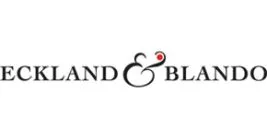- in Africa
The National Labor Relations Board (the "NLRB") has been waging a quiet, but unmistakable, war against employers, targeting non-solicitation, non-compete, and non-disparagement clauses, as well as other employment contract clauses and work rules.1 Recent NLRB decisions signal a troubling trend where vital safeguards routinely utilized by employers to protect their business interests are under heightened scrutiny and may be subject to costly and burdensome NLRB enforcement actions. Employers must rethink even longstanding employment contracts and rules, or risk drawing the NLRB's unwanted attention.
The NLRB is an independent federal agency that has broad power to enforce the National Labor Relations Act (the "Act"), which ensures employees have a right to self-organize and engage in collective bargaining. Reasonably, many might think the Act is limited to union activity. However, since the Act's inception, its protections have steadily blead into nearly all aspects of employment, covering most employment contracts and work rules. Until recently, a work rule's legality under the Act was subject to the Boeing Co. balancing test.2
The Boeing Co. test weighed the employer's legitimate reasons for the rule against the risk the rule could have a chilling effect on employees' right to organize or otherwise engage in protected activity under the Act.3 Only if the potential adverse impact on protected rights outweighed justifications associated with the rule would the NLRB strike down the rule.4 The NLRB also emphasized that having an overly broad rule was not enough by itself to violate the Act.5
This prior approach under Boeing Co. gave deference to an employer's legitimate business interests in maintaining workplace policies. But on February 21, 2023, the NLRB issued its McLaren Macomb decision, holding that a broad non-disparagement provision in a severance agreement violates the Act because, among other things, it might prevent an ex-employee from participating in a future, hypothetical NLRB investigation or other litigation.6 While arguably stretching the interpretation of the Act to its limits, the applicability of the NLRB's holding was relatively narrow.
Unfortunately, the NLRB General Counsel almost immediately sought to extend the McLaren Malcomb holding, suggesting that the NLRB should adopt a "similar standard" that applies to work rules generally.7 The NLRB, whether by coincidence or at the General Counsel's urging, did in fact adopt a new, strict work rule standard, which strongly suggests that non-disparagement clauses are likely to face scrutiny outside of the narrow severance agreement context. Shortly after deciding McLaren Macomb, the NLRB issued its decisioninStericycle that adopted a strict legal standard for evaluating whether a work rule violates an employee's rights under the Act.8 This decision explicitly overruled the more employer-friendly Boeing Co. standard (2017).
InStericycle, the NLRB explained that it viewed theBoeing Co.standard to be problematic because it permitted employers to adopt overbroad work rules that chill employees' exercise of their rights underSection 7of the Act.9 In doing so, the NLRB adopted a strict standard for reviewing employer work rules that demonstrates the NLRB's anti-employer bias. Under the Stericycle standard, if an employer can reasonably interpret an employer's rule to prohibit activity protected by the Act, the rule is assumed to be illegal.10 Moreover, the work rule is viewed from the perspective of an employee that is economically dependent on the employer, not a neutral, objective third party.11 An employer can only overcome this assumption and save the work rule by proving that the rule advances a legitimate and substantial business interest, and that the employer is unable to advance that interest with a more narrowly tailored rule.12
To make matters worse, the majority in Stericycle declined to explain what business interests might be legitimate and substantial, or how an employer might narrowly tailor such a rule. An NLRB board member disagreeing with the Stericycle decision wisely commented that it would be highly unlikely that an employer could introduce evidence that it maintains a current rule because a prior, narrower rule failed adequately to advance the legitimate and substantial business interest.13
Only one case since Stericycle has applied this standard, but it performed no analysis other than concluding that the employer "failed to show that it is unable to advance [its] interests with a 'more narrowly tailored rule.'"14 Based on the difficulty employers may have rebutting a presumptively unlawful rule, this new standard gives the NLRB a dangerous new tool to challenge longstanding workplace policies.
With the NLRB's recent shift towards anti-employer policy, careful consideration must be given to all workplace rules and employment contract provisions. Contact the experienced labor and employment law attorneys at Eckland & Blando today to ensure you avoid NLRB scrutiny while safeguarding your business interests.
Footnotes
1. Research and drafting assistance provided by Robby Dube, senior associate at Eckland & Blando LLP, and Rebecca Favre, law clerk at Eckland & Blando LLP.
2. The Boeing Co., 365 NLRB No. 154 (2017).
3. Stericycle, Inc. & Teamsters Loc., NLRB No. 113 (2023).
4. Id.
5. Id.
6. Mclaren Macomb, 372 NLRB No. 58 (2023).
7. See Memorandum from Jennifer A. Abruzzo, General Counsel, National Labor Relations Board to All Regional Directors (May 30, 2023).
8. Stericycle, Inc. & Teamsters Loc. 628, 372 NLRB No. 113 (2023).
9. Id.
10. Id.
11. Id.
12. Id.
13. Id.
14. Starbucks Corp. & Workers United a/w Serv. Emps. Int'l Union, No. JD-50-23, 2023 WL 5140070 (NLRB Div. of Judges Aug. 10, 2023).
The content of this article is intended to provide a general guide to the subject matter. Specialist advice should be sought about your specific circumstances.


